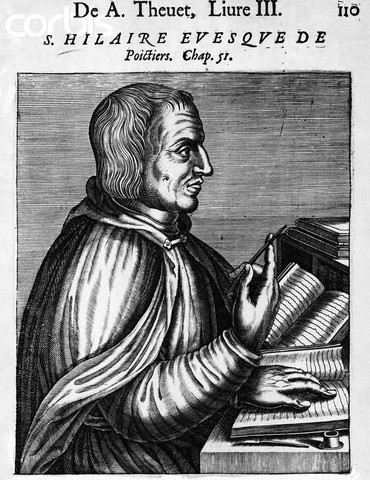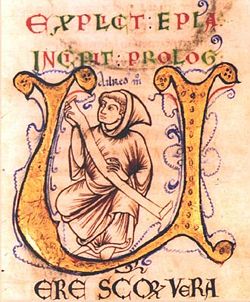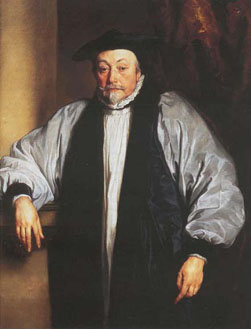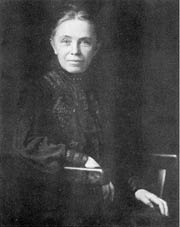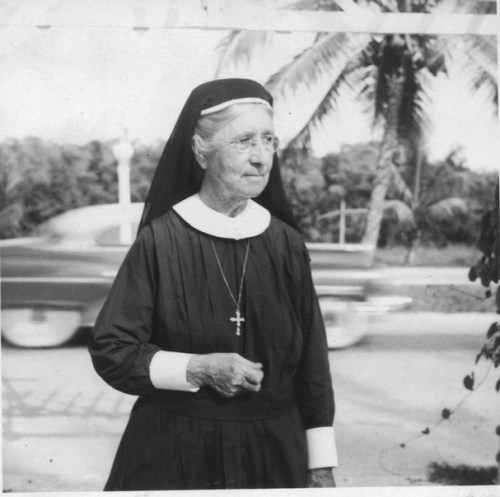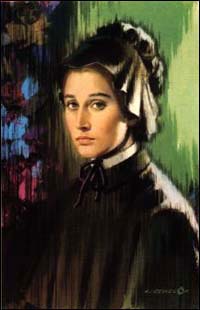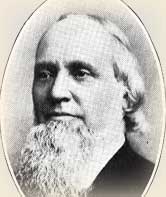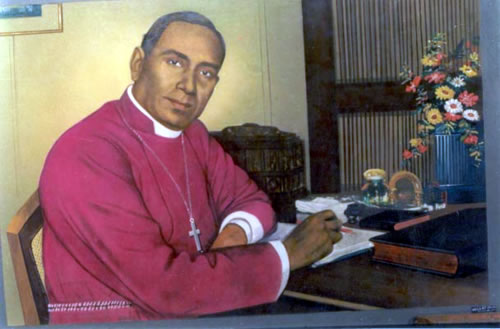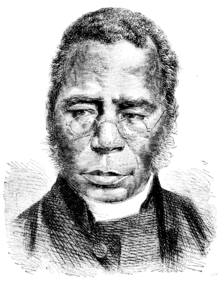Welcome to the Holy Women, Holy Men blog! We invite you to read about this commemoration, use the collect and lessons in prayer, whether individually or in corporate worship, then tell us what you think. For more information about this project, click here.
###
About this Commemoration
Richard Meux Benson and Charles Gore are remembered for their role in the revival of Anglican monasticism in the nineteenth century.
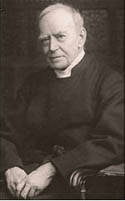 Richard Meux Benson, the principal founder of the Society of Saint John the Evangelist, was born on July 6, 1824, in London. As a student at Christ Church, Oxford, he came under the influence of Edward Bouverie Pusey, who became his spiritual mentor and lifelong friend.
Richard Meux Benson, the principal founder of the Society of Saint John the Evangelist, was born on July 6, 1824, in London. As a student at Christ Church, Oxford, he came under the influence of Edward Bouverie Pusey, who became his spiritual mentor and lifelong friend.
In 1849 Benson was ordained a priest and became rector of Cowley, a village neighboring Oxford. In 1866, together with two other priests, he founded the Society of Saint John the Evangelist (SSJE), “a smallbody to realize and intensify the gifts and energies belonging to the whole Church.” SSJE became the first stable religious communityfor men in the Anglican Church since the Reformation, styled as a missionary order patterned on St. Vincent de Paul’s Company of Mission Priests. A branch house was established in Boston in 1870. In 1874 work began in Bombay, and later Poona. By 1880 SSJE had opened a mission house in Cape Town, South Africa, and in 1903 in the Transkei. Benson wrote the original SSJE Rule and served as Superior until 1890.
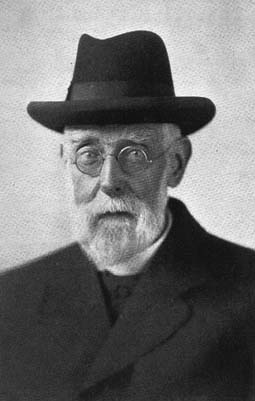 Charles Gore was born in 1853 in Wimbledon and educated mainly at Oxford. He was ordained in 1876 and served in positions at Cuddeston and Pusey House, Oxford, both of which were focused upon theological education and the formation of clergy. While at Pusey House, Gore founded the Community of the Resurrection, a community for men that sought to combine the rich traditions of the religious life with a lively concern for the demands of ministry in the modern world.
Charles Gore was born in 1853 in Wimbledon and educated mainly at Oxford. He was ordained in 1876 and served in positions at Cuddeston and Pusey House, Oxford, both of which were focused upon theological education and the formation of clergy. While at Pusey House, Gore founded the Community of the Resurrection, a community for men that sought to combine the rich traditions of the religious life with a lively concern for the demands of ministry in the modern world.
Gore, a prolific writer, was a principal progenitor of liberal Anglo-Catholicism in late nineteenth and early twentieth century Anglicanism. He was concerned to make available to the church the critical scholarship of the age, particularly with respect to the Bible. A second but no less important concern was to prick the conscience of the church and plead for its engagement in the work of social justice for all. Between 1902 and 1919, Gore served successively as bishop of the dioceses of Worcester, Birmingham, and Oxford.
Collects
I Gracious God, who hast inspired a rich variety of ministries in thy Church: We offer thanks for Richard Meux Benson and Charles Gore, instruments in the revival of Anglican monasticism. Grant that we, following their example, may call for perennial renewal in thy Church through conscious union with Christ, witnessing to the social justice that is a mark of the reign of our Savior Jesus, who is the light of the world; and who liveth and reigneth with thee and the Holy Spirit, one God, for ever and ever. Amen.
II Gracious God, you have inspired a rich variety of ministries in your Church: We give you thanks for Richard Meux Benson and Charles Gore, instruments in the revival of Anglican monasticism. Grant that we, following their example, may call for perennial renewal in your Church through conscious union with Christ, witnessing to the social justice that is a mark of the reign of our Savior Jesus, who is the light of the world; and who lives and reigns with you and the Holy Spirit, one God, for ever and ever. Amen.
Lessons
1 Kings 19:9–12
1 John 4:7–12
John 17:6–11
Psalm
27:5–11
Preface of a Saint (2)
Text from Holy, Women, Holy Men: Celebrating the Saints © 2010 by The Church Pension Fund. Used by permission.
###
We invite your reflections about this commemoration and its suitability for the official calendar and worship of The Episcopal Church. How did this person’s life witness to the Gospel? How does this person inspire us in Christian life today?
If you’d like to participate in the official online trial use survey, click here. For more information about the survey, click here.
To post a comment, your first and last name and email address are required. Your name will be published; your email address will not. The first time you post, a moderator will need to approve your submission; after that, your comments will appear instantly.
